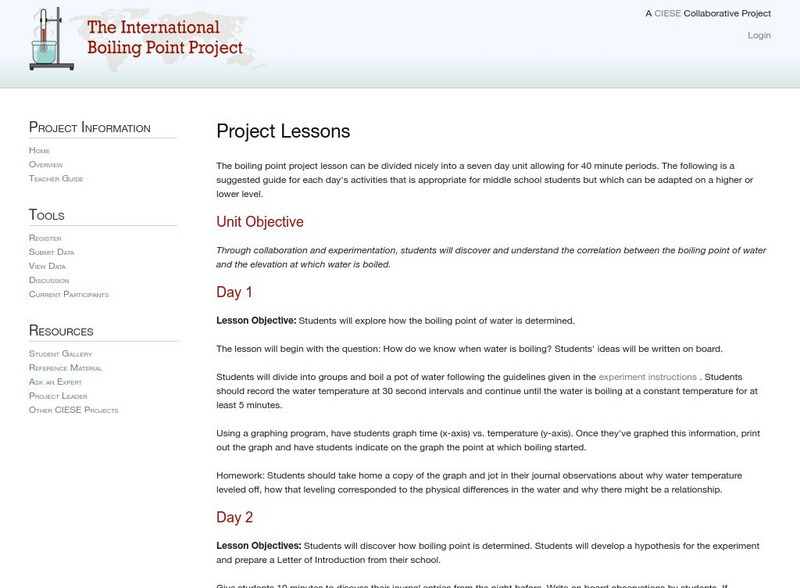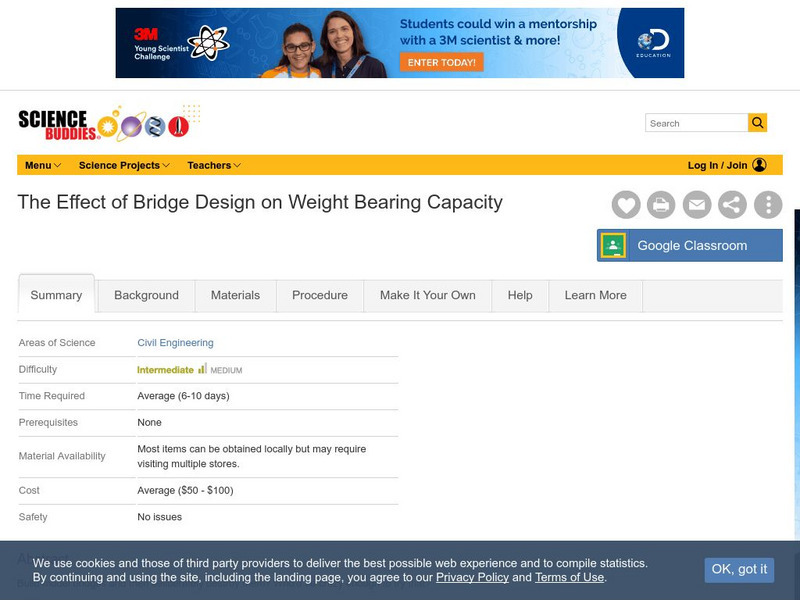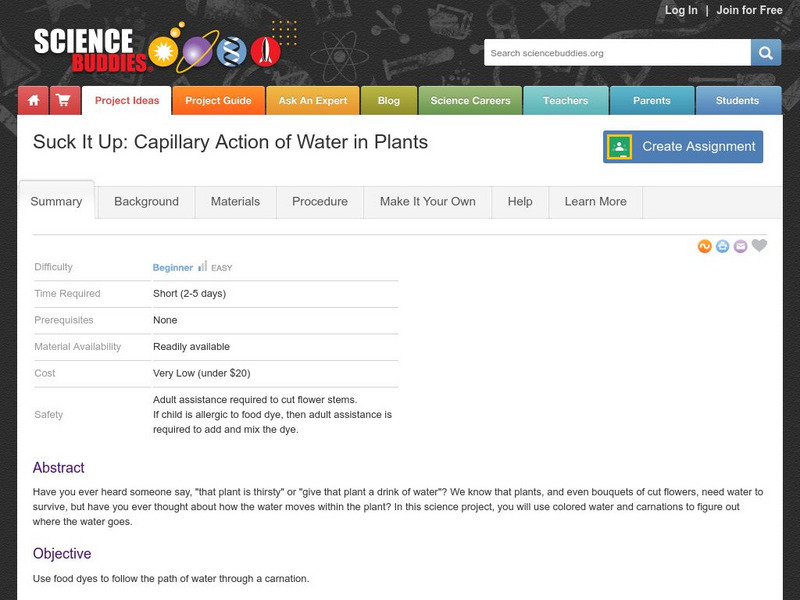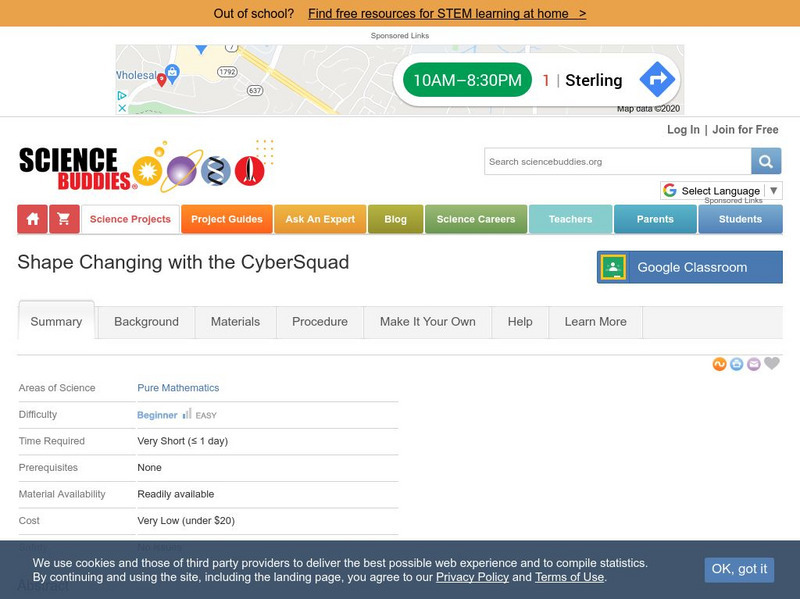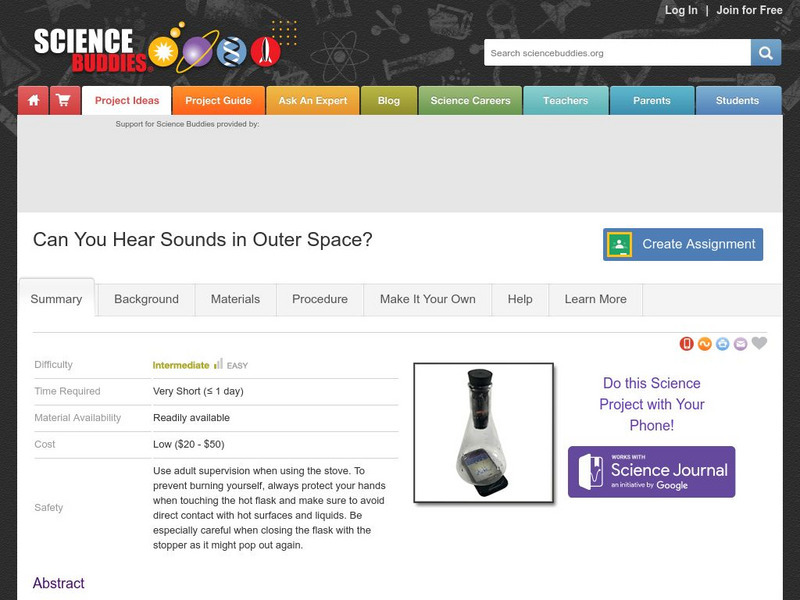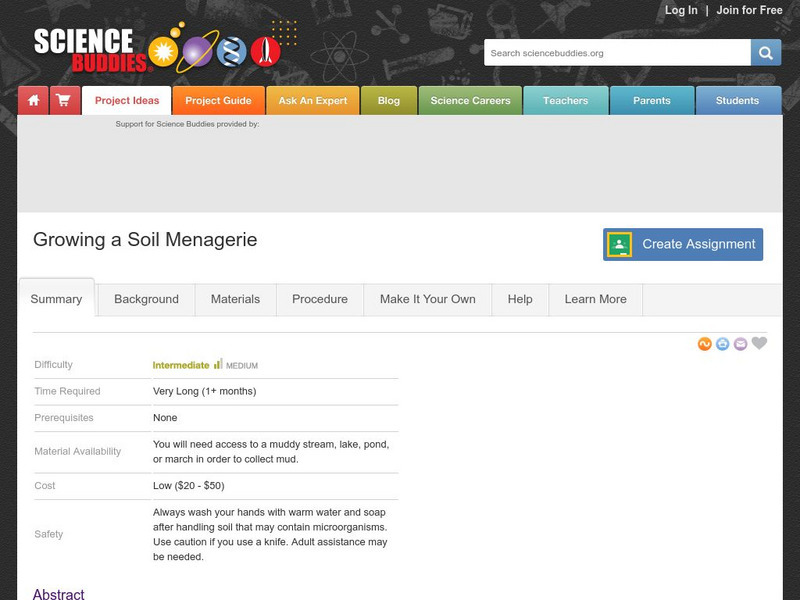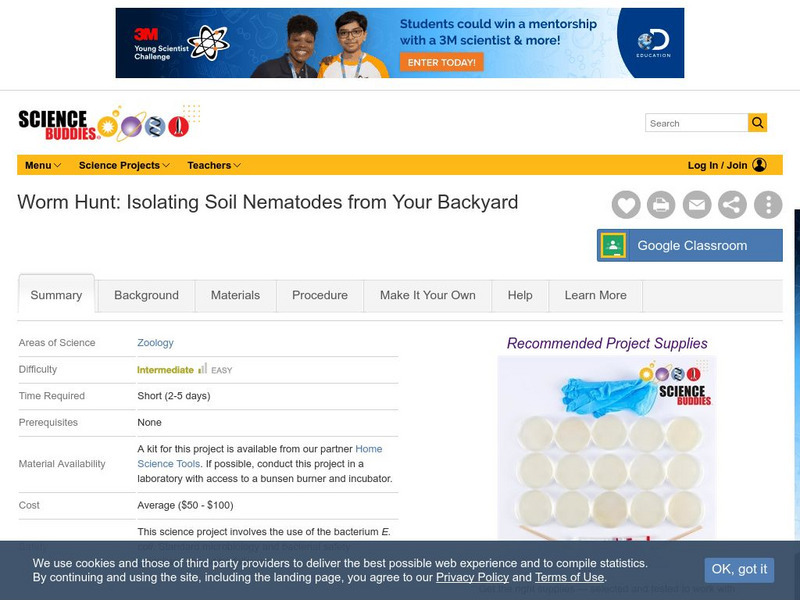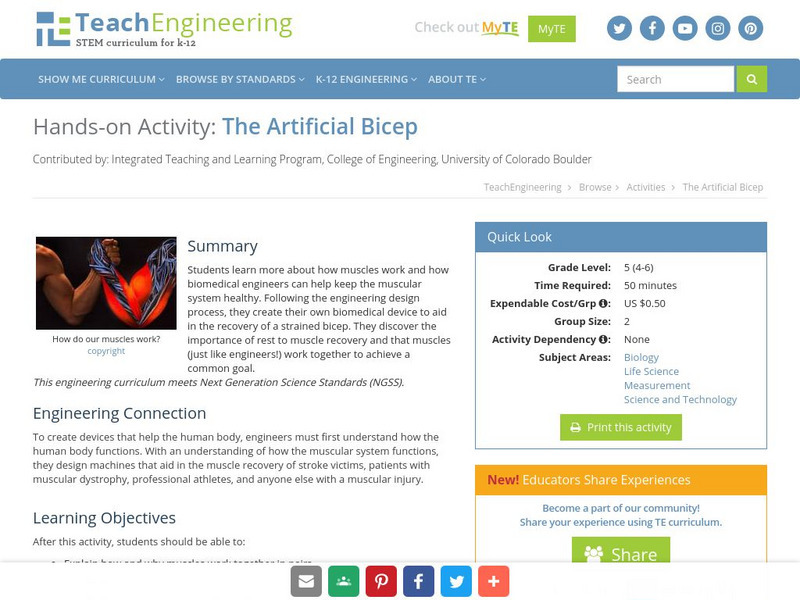Center for Innovation in Engineering and Science Education, Stevens Institute of Technology
Ciese: The International Boiling Point Project Lessons
A seven-lesson unit on discovering how the boiling point of water is affected by elevation. Additional materials, such as for assessment, can be accessed through the links on the left.
Smithsonian Institution
National Portrait Gallery: Black List Project: Lou Gossett, Jr.
With this resource, students can discover the story of award winning African American actor, Lou Gossett Jr., while viewing a photo.
Science Buddies
Science Buddies: Forensic Science: Building Your Own Tool for Identifying Dna
When biologists want to separate different pieces of DNA, RNA, or proteins they use a technique called gel electrophoresis. In this science project you'll build a gel electrophoresis chamber and use it to discover how many components are...
Science Buddies
Science Buddies: The Swimming Secrets of Duck Feet
By comparing the feet of different water birds you can discover how they propel the birds through the water. This Science Buddies project show you how to modify swim fins to simulate ducks' feet, greebes' feet, and the feet of...
Science Buddies
Science Buddies: The Effect of Bridge Design on Weight Bearing Capacity
This Science Buddies project asks that you identify different kinds of bridges, discover why they are built as they are, and then build three different bridges of your own out of balsa wood. See which one you think can bear the heaviest...
Science Buddies
Science Buddies: Boyle's Law
This is a modern version of a classic experiment by Robert Boyle on the compressibility of gases. Boyle discovered the relationship between pressure and volume of gases that now bears his name. This project shows you a simple method for...
Science Buddies
Science Buddies: Charles's Law
This is a modern version of a classic experiment by Jacques Charles on the volume of a gas at different temperatures. Charles discovered the relationship between volume and temperature of gases that now bears his name. This project shows...
Science Buddies
Science Buddies: Ewww, Dog Breath! Does Active Play Take a Dog's Breath Away?
A project that requires you to play with a dog cannot be all that bad, right? This scientific experiment entails the respiratory functions of dogs. Learn the chemical and bodily processes going on within your canine companions...
Science Buddies
Science Buddies: Suck It Up: Capillary Action of Water in Plants
We know that plants, and even bouquets of cut flowers need water to survive, but we often do not think about how water moves within a plant. In this science project, you will use colored water and carnations to discover how water travels...
Science Buddies
Science Buddies: How Does a Chick Breathe Inside Its Shell?
Whether a chick can breathe inside its shell is an interesting question. Every animal needs oxygen to survive, so the chick must get air somehow. Try this science project to discover if the pores in a chicken egg shell allow water to...
Science Buddies
Science Buddies: What Electric Bills Can Tell You About Energy Use
This project is a great way to "bring home" the concept of energy use. All you need to get started is a good-sized sample of monthly electric bills from households in your area. Building from this simple beginning, you can ask questions...
Science Buddies
Science Buddies: How Do You Make the 'Best' Cookie?
The benefit to cooking food from scratch versus store bought food is that you determine the taste. In this science fair project, discover if you can perfect the taste of your favorite cookie right in your own kitchen by experimenting...
Science Buddies
Science Buddies: Can You Predict a Bird's Lifestyle Based on Its Feet?
Animals have special features that allow them to adapt to conditions in certain environments. You might not be able to dive down 3281 feet to observe the deep sea anglerfish, but in this science fair project you can discover what the...
Science Buddies
Science Buddies: The Pixel Puzzle: Why Video Game Characters Look Better Today
Video games today look better than video games from the 80's, this is because now the number of pixels, or dots on the screen, used to represent video game objects has greatly increased. In the 80's, Mario was no more than 16 pixels tall...
Science Buddies
Science Buddies: A Puzzling Parallax
Did you know that ancient astronomers could measure the distance to other stars? They could also distinguish between stars and planets. How could they do that without modern technology of telescopes? See if you can discover the link...
Science Buddies
Science Buddies: Pick a Card, Any Card
No matter what your favorite card game is, we all wish we could use psychic powers to draw the card we want on our turn. You may not have psychic powers, but you might have the power of probability on your side. Do this experiment and...
Science Buddies
Science Buddies: Measuring the Amount of Acid in Vinegar by Titration
There are many different types of vinegar that you can buy to use around the kitchen for cooking and pickling. The chemical compound that gives vinegar its tart taste and pungent smell is acetic acid. In this experiment you will work to...
Science Buddies
Science Buddies: Where There Is Charge, There Can Be Sparks!
In this short science project you will learn how to build a capacitor using common household items. By testing different charge cycles, you will work to discover how much charge is stored in a Leyden jar capacitor.
Science Buddies
Science Buddies: Shape Changing With the Cyber Squad
In this project, you will make 2-dimensional templates, called nets, that fold up into 3-dimensional (3-D) shapes. By making shapes of different sizes, you will be able to see how 3-D shapes change with size. In your findings you will...
Science Buddies
Science Buddies: Outer Space, the Silent Frontier: An Experiment on Sound Waves
In outer space there is utter silence. There are no sounds of traffic jams or thunderstorms or crashing waves. No buzzing bees or babies crying. Just silence. In this experiment, you will discover why empty space is void of sound.
Science Buddies
Science Buddies: Growing a Soil Menagerie
Everything on our planet is linked by a giant recycling system called the biogeochemical cycle. How our planet recycles and reuses everything we need to support life is explained by making a miniature biosphere in this lab. You will also...
Science Buddies
Science Buddies: Worm Hunt: Isolating Soil Nematodes From Your Backyard
Nematodes, also called roundworms, are the most abundant animal on Earth and can be found in your back yard, playgrounds, and many other places. This lab involves isolating nematodes from several soil samples to discover the best...
Alabama Learning Exchange
Alex: Discovering Pi
This instructional activity allows learners to discover the number Pi. By measuring real life objects, students will get to see where the number Pi comes from as well as how the circumference formula is derived.This lesson plan was...
TeachEngineering
Teach Engineering: The Artificial Bicep
Students learn more about how muscles work and how biomedical engineers can help keep the muscular system healthy. Following the engineering design process, they create their own biomedical device to aid in the recovery of a strained...
